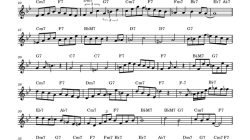Chicago Public Schools Faces Major Staffing Cuts Amid Budget Crisis
Chicago Public Schools (CPS) has announced the layoff of over 1,450 school-based staff members, including teachers, paraprofessionals, and special education classroom assistants. This move comes as the district works to address a $734 million budget deficit. The layoffs include 432 teachers, 311 paraprofessionals, 677 special education classroom assistants (SECAs), 33 security officers, and five parent workers.
According to an analysis of publicly released school budgets, 57% of district-run schools that are not alternative or specialty schools experienced a reduction in positions. The remaining 43% saw no change or an increase in available positions compared to last school year.
However, some staff members may have opportunities for retention. Ben Felton, CPS chief talent officer, noted that 123 special education teachers and up to 300 SECAs could be eligible for retention pools. These individuals would be paid centrally over the next school year and could be deployed to schools with vacant jobs. Felton emphasized that staff with unsatisfactory ratings are not eligible for these pools.
The timing of the layoffs is unusual this year due to delays in the district’s budgeting process. While CPS typically adjusts staffing and announces layoffs in the summer before the school year begins, this year’s fiscal year started on July 1, but the district does not expect to present a budget to its board for approval until next month.
Interim CPS CEO Macquline King also sent an email to teachers and principals, promising retroactive raises for the previous school year by mid-August. This follows a similar pattern from previous years, where about 80% of those laid off were able to find jobs at other schools.
The current budget deficit is significantly larger than previously estimated. Earlier this spring, CPS pegged its deficit at around $229 million under former CEO Pedro Martinez. However, when King took over, she revealed that the gap had grown by approximately $500 million. This increase includes a $175 million pension reimbursement to the city, which was not factored into earlier estimates.
These financial challenges mean additional cuts could still be on the horizon. Officials are considering borrowing money, a decision that has sparked debate among the school board and education advocates. CPS is holding a series of public meetings next week to gather feedback on how to close the budget deficit.
Budget Director Mike Sitkowski described the situation as “tough” and stated that the district has been transparent about its funding issues. He emphasized that officials are open to solutions that prioritize students and protect schools.
According to an analysis of the data released Friday, there will be 477 fewer positions across all district-run schools next year. While CPS officials could not immediately verify this number, Sitkowski explained that position cuts at individual schools are due to reduced need for certain roles. He added that the district plans to add more positions after the academic year starts, based on student attendance and needs.
CPS officials have also announced changes to how they staff schools with special education teachers and SECAs to address staffing imbalances. They stressed that these changes are unrelated to budget constraints. However, families and teachers expressed concerns that the shifts might reduce support for students with disabilities.
The Chicago Teachers Union (CTU) criticized the layoffs, calling them a “harmful and distressing annual ritual.” CTU leadership highlighted the retention pools they negotiated. Similarly, SEIU, another union representing staff, urged the city and school board to work with state leaders to mitigate the impact of the cuts.
SEIU also pointed out that the layoffs of SECAs were based on a “philosophical position” that too much support from SECAs could affect students’ independence after graduation. The union criticized the lack of communication with advocacy groups before making this decision.
CPS’s funding formula has shifted in recent years, providing schools with positions instead of direct funding. Schools with higher needs, determined by the Opportunity Index, generally receive more resources. One principal on Chicago’s South Side mentioned that her budget, based on a smaller deficit figure, was down just one position. She is using “savvy budgeting and maneuvering” to save it and has warned her staff that more cuts could come.
She also advocated for additional surplus money from the city’s Tax Increment Financing (TIF) program to support economic development. “I am concerned that the budget I worked with and put together is not a fully funded budget,” she said, noting that it feels like “monopoly money” at this point.
Reema Amin is a reporter covering Chicago Public Schools. Contact Reema at [email protected].







